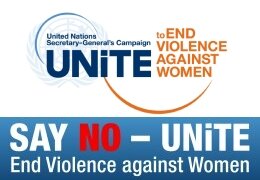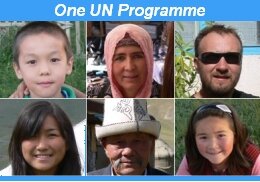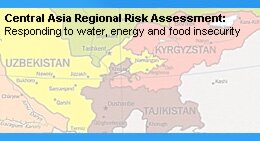|
The UN System in the Kyrgyz Republic has an excellent record in formulating and implementation of joint programmes. In 2009, the following joint programmes were successfully implemented in the country:
- Enhancing Coordination for Disaster Response in the Kyrgyz Republic
- Operationalizing Good Governance for Social Justice
- Action 2 Piloting in the Kyrgyz Republic
- Strengthening the Ombudsman Institution
- Violence Against Women (VAW)
Enhancing Coordination for Disaster Response in the Kyrgyz Republic
The project aimed at strengthening cooperation and coordination for disaster response among major actors in this field. Throughout 2008-2009 the disaster response coordination mechanism with its structures: Disaster Response Coordination Unit (DRCU), seven Sector groups, and two Rapid Emergency Assessment Coordination Teams (REACT), was established within the framework of the project. The main objective of the project was to enhance cooperation and coordination between Government of the Kyrgyz Republic, United Nations Country Team, Red Cross and Red Crescent Movements and other key actors in the field of disaster response for adequate and effective response to any emergency situations and it was achieved by the establishment of the disaster response coordination mechanism in the Kyrgyz Republic that joint efforts in disaster preparedness and response of all stakeholders. The project will be ended on 28 February 2010, thus negotiations and discussions will take place among key implementers of the project and the Ministry of Emergency Situations in Kyrgyzstan pertaining to the continuation and future outline of the next project in the beginning of 2010.
Operationalizing Good Governance for Social Justice
In 2009, the UN system was successful in negotiating with the EC on possible funding of the programme. This three-year programme is designed to increase democratic space in the country and institutionalize good governance practices at local and national levels.
Action 2 Piloting in the Kyrgyz Republic
Recognizing the importance of mainstreaming gender perspectives and attention to the goal of gender equality as central to all activities, in 2009, a number UN Agencies including OHCHR, UNICEF, UNESCO, WHO, UNFPA, UNIFEM and UNDP have agreed to extend “Action II Piloting in the Kyrgyz Republic” project to support the development of UNCT Kyrgyzstan Gender Mainstreaming Strategy for 2010-2015.
Strengthening the Ombudsman Institution
The United Nations Development Programme as an advocate for sustainable human development provides technical assistance to the Government, governmental institutions, the Parliament and civil society to strengthen their capacities to fulfill their respective roles and responsibilities in the society. One of the examples is the joint initiative of UNDP and United Nations Office of the High Commissioner for Human Rights to assist the Ombudsman Institute to promote the human rights learning and protection in Kyrgyzstan
Violence Against Women (VAW)
VAW is a priority for the UN system as a whole and coordinated efforts are needed to assist countries in eliminating violence against women. The Secretary–General’s in-depth study on all forms of violence against women recommends intensified action to eliminate violence against women at all levels. The General Assembly’s resolution (A/RES/63/143) urges UN entities to enhance coordination and intensify their efforts to eliminate violence against women in a more systematic, comprehensive and sustained way. As a result, the Inter-Agency Task Force on Violence Against Women started piloting a joint programming initiative to address violence against women in 10 countries, including Kyrgyzstan, involving all relevant stakeholders at the national level, including Government actors, the United Nations Country Team and civil society actors.
The UNCT also has a team of Joint Advisors on Human Rights, Gender, Disaster Response, and Political Affairs.
|













 Joint programmes
Joint programmes






